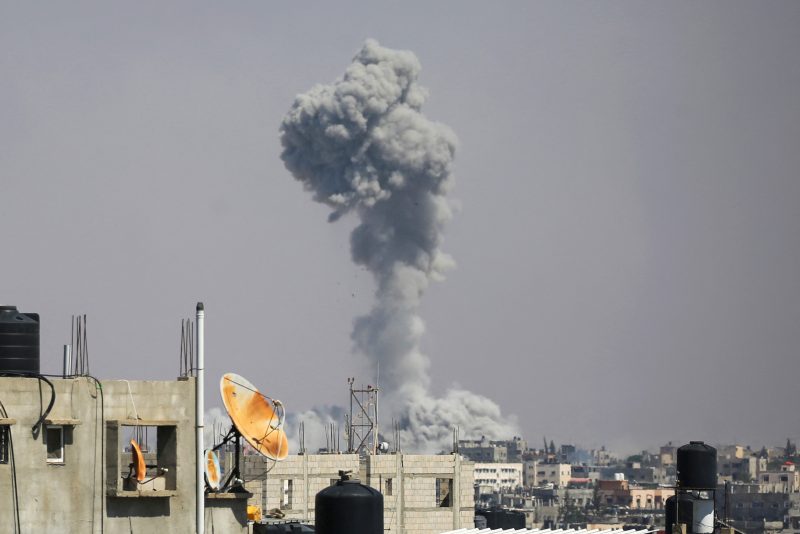The recent decision by the United States to halt the delivery of thousands of bombs to Israel amidst tensions in the region has garnered significant attention and sparked debates on international relations and conflict resolution. The move comes against the backdrop of the escalating conflict between Israel and Palestine, particularly in the Rafah region, adding a new dimension to the already complex situation.
The decision to pause the shipment of bombs to Israel highlights the delicate balancing act that many countries engage in when it comes to arms sales and foreign policy. While the U.S. has been a longtime ally of Israel, the decision reflects a growing awareness of the need to consider human rights implications and potential consequences of arming parties involved in conflicts.
The rift in Rafah has been a focal point of the conflict between Israel and Palestine, with both sides accusing each other of escalating violence and violating international norms. The humanitarian crisis in the region has further exacerbated tensions, prompting global attention and calls for peaceful resolutions.
The halt in the bomb shipment serves as a reminder of the role that arms sales play in perpetuating conflicts and the need for greater accountability and transparency in international arms trade. It raises questions about the ethical considerations that countries should take into account when engaging in weapons deals and the potential impact on civilians caught in the crossfire.
Moreover, the decision underscores the complex dynamics of the conflict in the Middle East and the challenges of finding a lasting and sustainable peace agreement. It calls for a reevaluation of strategies and approaches to conflict resolution, emphasizing the importance of diplomacy, dialogue, and respect for international law.
As the situation in Rafah and the broader region continues to unfold, the U.S. decision to halt the bomb shipment serves as a pivotal moment in the ongoing conflict, highlighting the need for concerted efforts to address the root causes of the violence and work towards a peaceful resolution that upholds human rights and international norms. It reflects a recognition of the interconnectedness of conflicts and the urgency of finding diplomatic solutions to prevent further escalation and loss of life.


























